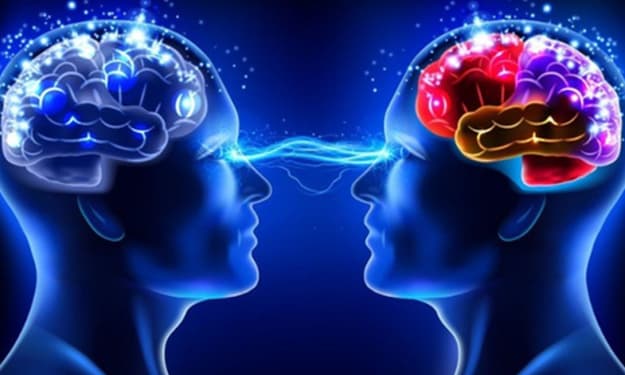Bloating and Chest Pain
How dyspepsia can cause bloating and chest pain

Bloating and chest pain can have various causes, and it's important to consult a healthcare professional for an accurate diagnosis and appropriate treatment. Here are a few possible explanations.
Indigestion: Bloating and chest pain can be symptoms of indigestion or dyspepsia. This can occur due to overeating, eating too quickly, consuming fatty or greasy foods, or having a gastrointestinal infection. Sometimes leaky gut treatment can help, so talk to your doctor about all the possibilities.
Gastroesophageal Reflux Disease (GERD): GERD is a condition where stomach acid flows back into the esophagus, causing heartburn and chest pain. Bloating may also be present due to the disruption of normal digestive processes.
Irritable Bowel Syndrome (IBS): IBS is a chronic gastrointestinal disorder characterized by symptoms such as abdominal pain, bloating, and changes in bowel habits. Chest pain can occasionally be associated with IBS, though it's important to rule out other causes.
Gas and trapped air: Excessive gas production in the digestive system can cause bloating and discomfort. In some cases, gas can accumulate in the chest area and cause chest pain.
Gallbladder issues: Problems with the gallbladder, such as gallstones or inflammation (cholecystitis), can cause bloating and pain in the upper abdomen that may radiate to the chest.
Cardiac issues: Although less common, certain cardiac conditions like angina or a heart attack can present with chest pain. These conditions may also cause other symptoms like shortness of breath, dizziness, or pain radiating to the arm, neck, jaw, or back. If you experience severe chest pain or suspect a heart problem, seek immediate medical attention.
Remember, these are just a few possible causes, and a healthcare professional would be best equipped to evaluate your symptoms, medical history, and perform any necessary tests to provide an accurate diagnosis.
How dyspepsia can cause bloating and chest pain
Dyspepsia, also known as indigestion, is a condition that refers to a group of symptoms that occur in the upper abdomen, including discomfort, pain, bloating, and a feeling of fullness. The exact cause of dyspepsia is not always clear, but several factors can contribute to its development. Here's how dyspepsia can cause bloating and chest pain.
Impaired digestion: Dyspepsia can affect the normal digestion process. It may lead to delayed stomach emptying or a dysfunction in the coordination of the muscles involved in digestion. This can result in the accumulation of gas in the stomach and intestines, leading to bloating. There are supplements that can help with dyspepsia.
Increased gas production: Dyspepsia can increase the production of gas in the digestive system. This can occur due to various factors such as swallowing air, bacterial overgrowth in the intestines, or the fermentation of undigested food. The excess gas can cause bloating and distention of the abdomen, which may contribute to chest discomfort or a feeling of pressure.
Acid reflux: In some cases of dyspepsia, there may be an underlying issue with the lower esophageal sphincter (LES), which is the muscle that normally prevents stomach acid from flowing back into the esophagus. When the LES is weakened or relaxed, acid reflux can occur, leading to heartburn and chest pain.
Sensitivity of nerve endings: The nerve endings in the gastrointestinal tract can become hypersensitive in individuals with dyspepsia. This increased sensitivity can result in heightened perception of pain or discomfort, including in the chest area.
It's important to note that while dyspepsia can cause chest pain, other serious conditions such as heart problems should be ruled out if you experience severe or persistent chest pain. If you're experiencing symptoms of dyspepsia, it's advisable to consult a healthcare professional for a proper evaluation and guidance on managing your symptoms.
Talking to a doctor about bloating and chest pain
If you're experiencing bloating and chest pain, it's important to consult with a doctor or healthcare professional for a proper evaluation and diagnosis. Here are some steps you can take when discussing these symptoms with a healthcare provider.
Make an appointment: Schedule an appointment with your primary care physician, a gastroenterologist, or a general practitioner who can evaluate your symptoms. If your symptoms are severe or worsening rapidly, consider seeking immediate medical attention.
Describe your symptoms: During your appointment, clearly explain your symptoms, including the duration, frequency, and severity of the bloating and chest pain. Provide any additional information that might be relevant, such as changes in your diet, lifestyle, or medications.
Medical history: Be prepared to discuss your medical history, including any pre-existing conditions, surgeries, or previous gastrointestinal issues. Inform your doctor about any medications you're currently taking, including over-the-counter medications and supplements.
Physical examination: Your doctor may conduct a physical examination to assess your overall health and check for any signs that could indicate potential causes of your symptoms.
Diagnostic tests: Depending on your symptoms and medical history, your doctor may recommend further diagnostic tests to determine the underlying cause. These may include blood tests, imaging studies (such as an abdominal ultrasound or endoscopy), or other specialized tests to assess the function of your gastrointestinal system.
Follow-up questions: If you don't understand something or have concerns, don't hesitate to ask your doctor for clarification or ask follow-up questions. It's important to have a clear understanding of your condition and any recommended treatments.
About the Creator
Enjoyed the story? Support the Creator.
Subscribe for free to receive all their stories in your feed. You could also pledge your support or give them a one-off tip, letting them know you appreciate their work.





Comments
There are no comments for this story
Be the first to respond and start the conversation.